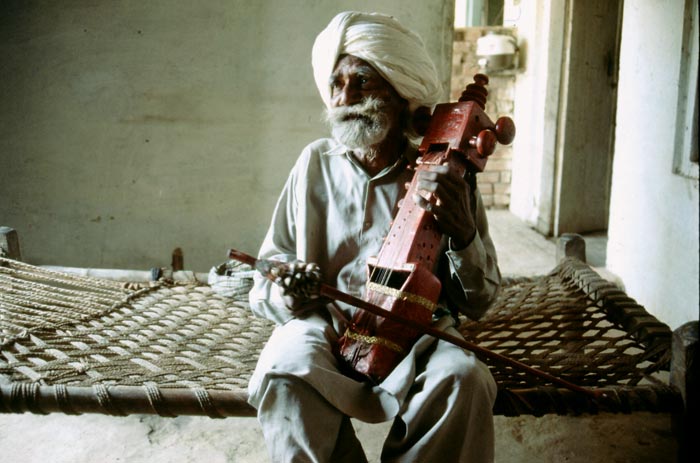Gurvinder Singh





Grant Period: Over two years
Filmmaker Gurvinder Singh had received an IFA grant earlier for preparatory research and audio-visual documentation towards a film on the Sufi and bhakti music of the Punjab. However, for Mr Singh, the documentation of the bhakti and sufi music did not end with the making of the film, Pala. His deep interest in the tradition and the community that has kept it alive has compelled him to think of ways of strengthening the tradition and disseminating the music by making it available to larger audiences. What began as an individual filmmaker’s desire to economically benefit the performer, has now acquired the form of a full-fledged two-pronged marketing idea that will take the music beyond its niche rural market. Except for the short radio performances archived in the All India Radio, Jullundhar, there are no available recordings of the kissas (legends) of the Punjab. Gurvinder Singh will make field audio recordings of the kissas as they are sung and narrated by the folk singers. The objective is to make complete recordings of the kissas and the tradition of rendering them with the toomba, the algoza and the dhad-sarangis (musical instruments usually associated with the tradition of performing the kissas in rural Punjab). During the making of the film, Mr Singh had partially documented eight performers/groups from the kissakari tradition.
There are about 15 kissas that are still part of the repertoire of these performers – Heer Ranjha, Sassi Punnu, Mirza Sahiban, Puran Bhagat, Sohni Mahiwal, Raja Rasalu, Raja Harichandra, Gopichand, Dhol Sammi, Dulha Bhatti, Jeuna Maud, Shah Dahood, Shahni Kaulan, Jaimal Fatteh and Shah Behram. Most of these kissas are rooted in the Punjab. Some have Persian or Arabic origins, while others can be traced to Central India and Rajasthan. Besides these legends, most of these folk singers render episodes from Sikh history and from Hindu epics. While the kissakari tradition is still a strong one, the tradition of performing sufiyanaqalams is on the decline. In his field trips, Mr Singh had identified and sporadically recorded seven performers/groups. He hopes to be able to help these performers of the sufiyanaqalam to dig deeper into the repertoire through the process of professionally recording the music. Assisted by scholar and musician, Madan Gopal Singh, the aim is to encourage the performers to reclaim some of the repertoire they have lost.
The need, as identified by Mr Singh, is to make recordings of the music available to audiences in the Punjab and, at a later stage, to the Punjabi diaspora around the world. While the revenue generated from sales will economically support these artists and get them recognition, the younger generation from these communities would be enthused to take up music professionally. The performers will be provided with the recordings of their music, which they can duplicate and sell to their rural audiences. In the long term, local music companies will be contacted and encouraged to release the recordings in rural pockets where there are buyers. A website with a database of the music and the profile of the artists will also be created. The potential buyer would be able to sample the music online. Mr Singh observes that the demands of the market will dictate the thematic categories. The artists will receive royalties for every CD sold on the website. The CDs will be reasonably priced to make them easily accessible. Mr Singh will explore possibilities of tying up with websites having the facility for online transaction. During his research for the film he met a number of scholars, musicians and music teachers in university departments who were keen to help trigger interest in the music tradition. With their help, Gurvinder Singh hopes to set up a non-profit organisation that will take his work with the tradition forward.
